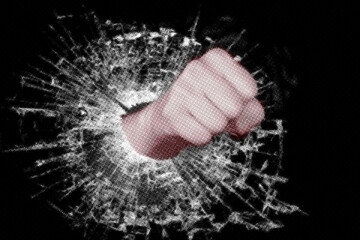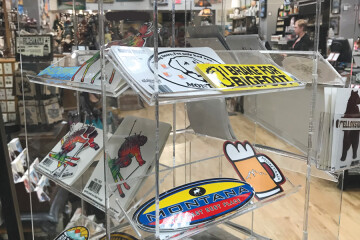What's Your Beef? Loud Pipes

So, tell me how is it that law enforcement can pick out a loud party, but they can’t pick out a loud motorcycle?
Several years ago, while on a family vacation in Glacier National Park, we hiked into the Granite Park Chalet. Five miles into the trek, I noticed that the only man-made sound I could hear was from the loud motorcycles on the Going-to-the-Sun Road. When I returned to Logan Pass the next day, I took the opportunity to stop by the visitors’ center to ask a park ranger why loud bikes are allowed in the park. He said that it was up to the state of Montana to enforce vehicle noise violations.
Montana Law MCA 61-9-403 requires that every motor vehicle must have a muffler, and MCA 61-9-418 sets decibel limits based on the date the motorcycle was manufactured. A motorcycle made prior to 1970 is limited to 92 db. or about as loud as a food processor. Any bike manufactured after 1987 is limited to 70 db. or about the same noise level as a dishwasher. Bikes in between follow a graduated scale.
Why then are there so many loud motorcycles on our streets and highways? The standard argument is that “Loud pipes save lives.” But there is no data that supports this myth. Insurance companies whose job it is to assess risk don’t offer discounts based on how loud the motorcycle is. Dollar for dollar, a Honda Goldwing which makes almost no noise can be cheaper to insure than a customized Harley-Davidson. In reality, the false sense of security created by the loud noise probably reduces the level of caution, leading some to ride like drunken cowboys. Ironically, a loud exhaust makes it impossible for the rider to hear the traffic around them and many of these riders wear earplugs. In addition, since the noise is directed backwards, it won’t be heard by the car driver in front changing lanes or the one pulling out into traffic especially if their windows are up and the A/C and radio are on. Car manufactures spend millions to make their car interiors quiet and their sound systems awesome. One EMT commented that motorcycle riders who think loud pipes will keep them safe are referred to as “Organ Donors.” Helmets save lives, so does riding with the headlight on. Loud pipes have more to do with Freud than safety.
Here in Bozeman, there seems to be more and more loud motorcycles every summer. Case in point, while riding the chair lift at Bridger a few winters ago I met the owner of the local Harley-Davidson dealership. He commented that often times the first thing a new bike owner does is have the mechanics take off the factory exhaust system and replace it with one that is only approved for competition. He’s making money. Downtown business owners complain that with their doors open on warm days, they have to stop conversations with customers when loud bikes blast down Main Street. Residential neighborhoods blocks away from traffic also endure the racket. Riders may wait until they’re in someone else’s neighborhood before they really get on it, but it doesn’t matter, they’re everywhere now. And loud bikes on the interstate can be heard all over the valley and into the surrounding mountains.
Communities spend anywhere from three to five hundred thousand dollars to install a single quiet railroad crossing, so trains don’t have to sound their horn. Jet engine manufacturers have spent, and are spending, millions to reduce jet noise. All these efforts are for naught when an Easy Rider wannabe with loud pipes takes to the road.
Recently, the Bozeman Police Department ordered a decibel meter so that they can accurately measure vehicle noise. But, as a quality of life issue, it’s not a high priority and is driven almost exclusively by complaints. Consequently, they need a license plate or an owner address. Let’s face it, riding a motorcycle on city streets and highways can be dangerous. I know; I rode for years with a factory exhaust system. I credit a booklet I was given called “Intelligent Motorcycling” for keeping me upright. Loud pipes are not the answer besides they’re against the law.
Brian Leland has an engineering degree from MSU, is an electrical contractor and a Bozeman resident since 1977.




